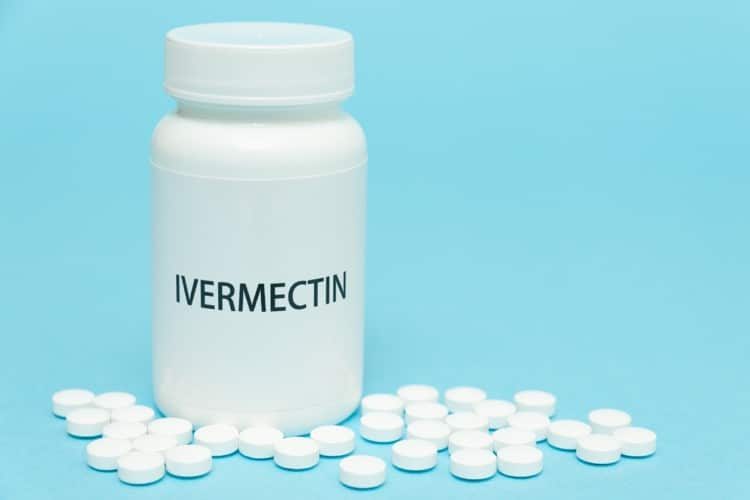
The National Institutes of Health have updated treatment guidelines for the use of the drug ivermectin as a therapeutic for treatment of COVID-19.
In a statement on January 14, the NIH announced:
“The COVID-19 Treatment Guidelines Panel (the Panel) has determined that currently there are insufficient data to recommend either for or against the use of ivermectin for the treatment of COVID-19. Results from adequately powered, well-designed, and well-conducted clinical trials are needed to provide more specific, evidence-based guidance on the role of ivermectin for the treatment of COVID-19.”
That doesn’t sound like a ringing endorsement, but a group of physicians who championed the use of ivermectin for COVID treatment throughout much of 2020 put the NIH revised guidelines into proper, and more encouraging, perspective.
“This new designation upgraded the status of ivermectin from ‘against’ to ‘neither for nor against’, which is the same recommendation given to monoclonal antibodies and convalescent plasma, both widely used across the nation,” said a January 15 press release from the organization Front Line Covid-19 Critical Care Alliance (FLCCC).
That organization was founded by Dr. Paul Marik and Dr. Pierre Kory, both medical professionals with extensive clinical and academic backgrounds. Dr. Marik is a tenured Professor of Medicine and Chief of the Division of Pulmonary and Critical Care Medicine at the Eastern Virginia Medical School and is, according to his bio, “the 2nd most published critical care physician in the world” having authored “over 500 peer-reviewed journal articles, 80 book chapters and four critical care books.”
Dr. Kory, who is president of the FLCCC, is former Chief of the Critical Care Service and Medical Director of the Trauma and Life Support Center and the University of Wisconsin and was one of the pioneers in the United States, according to his biography, “in the research, development, and teaching of performing therapeutic hypothermia to treat post-cardiac arrest patients.” In 2020, Dr. Kory led COVID ICU efforts in Greenville, South Carolina, and Milwaukee, Wisconsin.
In comments about the NIH updated recommendation, Dr. Kory detailed the importance of ivermectin.
The drug “is one of the world’s safest, cheapest and most widely available drugs,” he said. “The studies we presented to the NIH revealed high levels of statistical significance showing large magnitude benefit in transmission rates, need for hospitalization, and death. What’s more, the totality of trials data supporting ivermectin is without precedent.”
The updated ruling on ivermectin marks a significant change from the earlier NIH stance on the drug.
“We are encouraged that the NIH has moved off of its August 27 recommendation against the use of ivermectin for COVID-19,” Dr. Kory said. “That recommendation was made just as the numerous compelling studies for ivermectin were starting to roll in. New studies are still coming in, and as they are received and reviewed, it is our hope that the NIH’s recommendation for the use of ivermectin will be the strongest recommendation for its use as possible.”
Ivermectin was discovered in 1975 and entered medical use as an anti-parasitic in 1981 and is used effectively against a range of parasites including roundworms, pinworms, mites and lice, among others. The drug is also being investigated for, and may be of use in, treatment of tropical diseases like yellow fever and malaria.
As for COVID treatment, Dr. Kory and several coauthors investigated the use of the drug during 2020 in COVID patients. Their results are provisionally accepted for publication in the peer-reviewed journal Frontiers in Pharmacology. Their prepublication description of that paper notes: “The FLCCC … discovered that ivermectin, an anti-parasitic medicine, has highly potent anti-viral and anti-inflammatory properties against COVID-19. They then identified repeated, consistent, large magnitude improvements in clinical outcomes in multiple, large, randomized and observational controlled trials in both prophylaxis and treatment of COVID-19.”
In other words, there is significant evidence of the usefulness of the drug.
Interestingly, ivermectin is similar in some respects to a more high-profile drug: hydroxychloroquine. That anti-malarial medication was the center of much hope, disagreement and controversy throughout 2020. Like ivermectin, hydroxychloroquine is an old and inexpensive drug that many have found to be useful in some Covid treatment situations.
As for ivermectin, the NIH has now admitted that, though some studies do not show positive results, many others do.
“Since the last revision of the Ivermectin section of the Guidelines, the results of several randomized trials and retrospective cohort studies of ivermectin use in patients with COVID-19 have been published in peer-reviewed journals or made available as preliminary, non-peer-reviewed reports,” NIH reported. “Some clinical studies showed no benefits or worsening of disease after ivermectin use, whereas others reported shorter time to resolution of disease manifestations attributed to COVID-19, greater reduction in inflammatory markers, shorter time to viral clearance, or lower mortality rates in patients who received ivermectin than in patients who received comparator drugs or placebo.”



